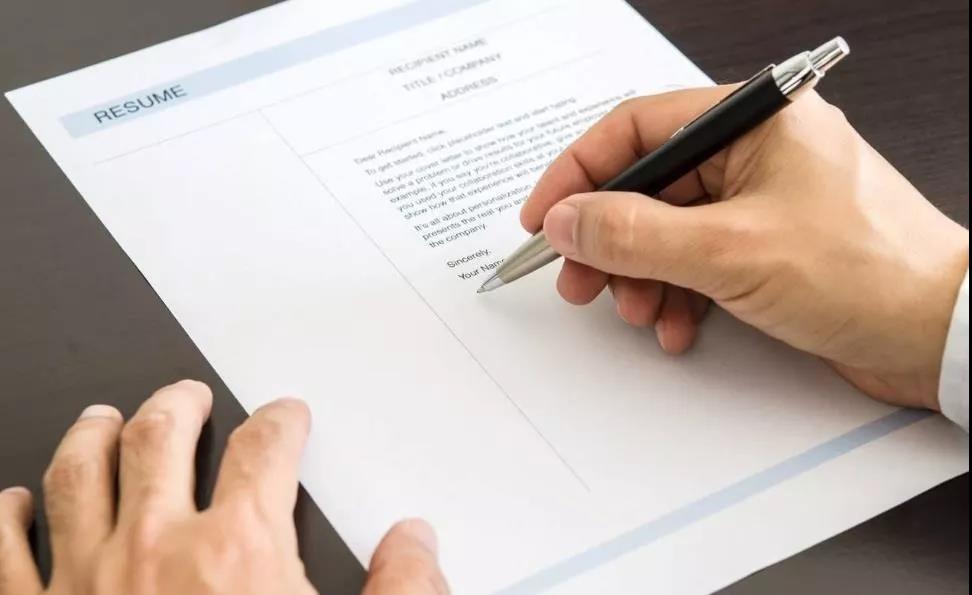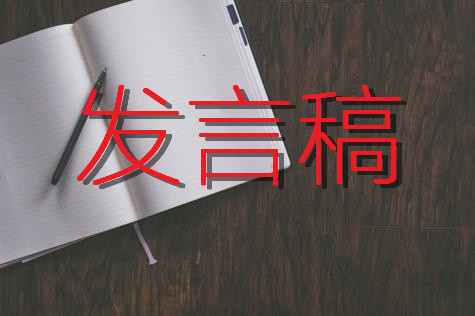原创情态动词考点专项训练_情态动词专项训练
时间:2020-02-23 07:36:16 来源:雅意学习网 本文已影响 人 
1. I’m sorry, Dr. Brown ______ speak to you now―she’s got someone with her. A. needn’t B. can’t C. mustn’t D. may not
2. You ______ get very nasty skin diseases from bathing in dirty water.
A. can B. may C. must D. should
3. ― You’re needed here, Livy.
―But what ______ I do?
A. can B. may C. must D. should
4. I ______ you, but I didn’t think you would listen.
A. must tell B. must have told
C. could tell D. could have told
5. Somebody ______ have opened the cage―the lion ______ not have escaped on its own.
A. must, can B. must, could
C. could, should D. can, should
6. Be careful with that stick ― it ______ in my eye!
A. could go B. must go
C. could have gone D. must have gone
7. I waited ages for you ― you ______ that you weren’t coming!
A. could say B. must say
C. could have said D. must have said
8. He did not regret saying what he did but felt that he ______ it differently.
A. could express B. must express
C. could have expressed D. must have expressed
9. Doctors told him the disease ______ have been caused by years of working in smoky clubs.
A. can B. could C. should D. would
10. Liza ______ well not want to go on the trip―she hates traveling.
A. should B. must C. may D. need
11. The bag has narrow straps, so it ______ be worn over the shoulder or carried in the hand.
A. shall B. must C. may D. need
12. Adolescents under the age of 18 ______ work in jobs that require them to drive.
A. needn’t B. may not C. shall not D. don’t
13. Walking exercise ______ be boring at times but early on a clear sunny morning there be nothing finer.
A. must, can B. should, can C. may, must D. may, can
14. A small technical error ______ easily result in a serious accident.
A. must B. may
C. need D. have
15. You could try the drugstore, but it ______ well be closed by now.
A. must B. may
C. need D. have
16. There ______ be some evidence to suggest she’s guilty, but it’s hardly conclusive.
A. can B. need C. must D. may
17. I brought him some sandwiches because I thought he ______ be hungry.
A. might B. shall C. can D. need
18. The meeting was a complete waste of time. I ______ just as well have stayed at home.
A. can B. might C. must D. need
19. I remember that day so clearly, it ______ yesterday.
A. must be B. might be
C. must have been D. might have been
20. ― I’ve asked the boss to dinner tonight.
― Well, you ______ have warned me!
A. must B. can C. need D. might
21. There ______ be some mistake ― no one with the name Shaw lives here.
A. will B. must C. may D. can
22. If you ______ be in the sunlight, use the strongest filter cream you can get.
A. need B. must C. may D. should
23. ― Why don’t you wear your jogging shorts, Mum?
― Well, my legs are too skinny, if you ______ know.
A. must B. need C. may D. should
24. They ______ lost or they’d be here by now.
A. must get B. must have gotten
C. should get D. should have gotten
25. The school rules state that no child ______ be allowed out of the school during the day, unless accompanied by an adult.
A. can B. may C. shall D. will
26. I wonder what’s happened to Annie. She ______ be here by now.
A. shall B. might C. should D. need
27. If anything ______ happen to me, please give this letter to my wife.
A. can B. might C. should D. dare
28. I ______ in the shade like all the other tourists, then I wouldn’t have got burned.
A. must be B. must have been
C. should be D. should have been
29. You ______ worry ― I’m not going to mention it to anyone.
A. mustn’t B. cannot C. may not D. needn’t
30. It’s a wonderful way of getting to see Italy, and it ______ cost very much.
A. mustn’t B. cannot C. may not D. needn’t
31. You ______ all those dishes, you know―I’d have done them myself when I got home.
A. can’t wash B. can’t have washed
C. needn’t wash D. needn’t have washed
32. He ______ to hospital, but he went just to reassure himself.
A. can go B. can’t have gone
C. needn’t go D. needn’t have gone
【答案与解析】
1. B。考查can的基本用法。比较四个选项,显然只有can’t的意思最符合句子语境。句意为:对不起,布朗医生现在不能同你说话,他在同别人谈话。
2. A。can 在此表推测,意为“可能”,句意为:在不干净的水中洗澡,你有可能会感染比较麻烦的皮肤病。类似的例子如:Even an experienced climber can get into trouble. 哪怕是个有经验的登山者也可能陷入困境。
3. A。can 在此表示“能”“能够”,对话的意思是:“李维,这儿需要你。”“但我能做什么呢?”
4. D。考查could后接完成式的用法,表示对可能已经发生的情况作推测,句意为:我本想告诉你的,但以为你不愿听。
5. B。第一空考查must后接完成式的用法,意思是“一定发生了某事”,表示对过去情况的肯定推测;第二空考查could后接完成式的用法,意思是“可能发生了某事”,表示对过去情况的猜测或推断,意思是“可能……”。句意为:一定是有人打开了笼子――因为狮子是不可能自己跑出来的。
6. C。考查could后接完成式的用法,表示本来可能会发生某情况,但实际上没有发生,相当于汉语中的“差点儿”。 注意不能选D,因为must后接完成式表示一定做过某事。句意为:注意那根棍子,差点戳到我的眼睛了。
7. C。考查could后接完成式的用法,表示本来应该做某事,但实际上没有做,相当于汉语中的“本来应该”。注意不能选D,因为must后接完成式表示一定做过某事。句意为:我等了你好久,你应该告诉我一声你不来了!
8. C。could have done表示过去可以做而实际上未能做的事,通常译为“本来可以”“原本可以”,句意为:他不后悔说出自己所做的事,但觉得原本可以换个方式来表达。
9. B。could 后接完成式在此表示对过去可能发生的情况作推测,意为“可能”。另外,句中还用了被动式。句意为:医生告诉他,这种病可能是由于他在烟雾弥漫的俱乐部多年工作所导致的。
10. C。may和might表示推测时,可在其后接副词well,以加强语气,意为“很可能”“非常可能”等,如:You may well achieve your very worthy ambition. 你非常可能实现你可敬佩的雄心。
11. C。考查may的基本用法,其意为“可以”,句意为:这种包有条窄长带子,所以既可以挎在肩膀上,也可以拿在手上。
12. C。考查may表示允许时的否定用法。may表示允许时,其意为“可以”,否定式may not的意思是“不可以”。句意为:18岁以下的青少年不可以从事需要开车的工作。
13. D。根据常识可知,两空均属不是很有把握的推测,句意为:散步锻炼有时可能很乏味,但在天气晴朗的大清早去散步有可能比什么都好。
14. C。考查may表示推测的用法,may easily与may well大致同义,均表示“很可能”。句意为:一个很小的技术错误也很可能会导致严重的错误。
15. B。考查may表示推测的用法,may well为英语惯用表达,意为“很可能”,与might well, can well, could well等大致同义。句意为:你可以到杂货店去试试,但现在很可能关门了。
16. D。can表示推测一般用于否定句或疑问句,need用作情态动词时也主要用于否定句或疑问句,故这两个选项可以排除。句中conclusive的意思是“令人信服的”“确凿的”,所以but it’s hardly conclusive的意思就是“但不是很有说服力”。must be表示十分可定的推测,与句子语境不符,也可排除。句意为:也许有些证据表明她有罪,但并没有说服力。
17. A。选项might在此表示推测,意思是“可能”“也许”,shall用于第三人称时表“允诺”“威胁”“命令”,can表示推测时一般用于否定句或疑问句,need表示“必要”“需要”。根据句意可知,选A。
18. B。might (just) as well 为英语惯用表达,意思是“不如”,句意为:这次会议完全是浪费时间,我还不如待在家里。
19. D。根据句中的 that day(那天)可知,句子谈论的是过去的情况,故可排除A和B;再从句意上看,C的意思太肯定,与句子语境不符,故可排除。句意为:那一天的情景我记得非常清楚,就好像是发生在昨天一样。
20. D。根据语法规则可知选项B和C不对,因为用作情态动词的need和can通常只用于否定句或疑问句,不用于肯定句;而must接动词完成式表示对过去情况十分肯定的推测(意为“一定”),与句子语境不符,故只能选D。句意为:“我今晚叫了老板吃饭。”“啊,你怎么不早提醒我!”
21. B。比较四个选项,只有选B意思最通顺。must在此表示“必须”“一定”。句意为:一定是搞错了,住在这里的人没有叫肖的。
22. B。must在此表示坚持,句意为:如果你坚持要待在太阳底下,就尽可能用防晒效果最好的护肤霜。
23. A。must在此表示坚持,句中if you must know为英语口语中的惯用表达,主要用于告诉对方自己的事不想让别人知道,同时暗示对方所问的问题有些不妥。if you must know的意思是“如果你一定要知道的话”。
24. B。根据语境可知,“迷路”已经发生了,这就说明后面句子是针对过去情况作推测,故应用“情态动词+完成式”,而不能用“情态动词+动词原形”,故可排除A和C;再根据句意可知,答案应为B。句意为:他们一定是迷路了,否则现在他们应该到了。
25. C。shall在此表规定。句意为:校规上写着,任何小孩都不准在白天待在校外,除非有大人陪同。
26. C。should在此表推测,意思是“应该”。句意为:不知安妮出什么事了,现在她应该到了。
27. C。should在此用于加强条件句的语气,意为“万一”,句意为:万一我发生什么意外,请把这封信交给我的妻子。
28. D。从句意上看,句子的内容是在谈论过去的情况,故要用“情态动词+完成式”,而不能只用“情态动词+一般式”,故可排除A和C;而B和D两个选项中,B表示“一定是……”,D表示“本来应该……”,显然只有D符合句子语境。句意为:我本来应该像其他所有旅客那样待在阴凉处的,这样我就不至于被晒伤了。
29. D。根据破折号后面的内容可知,空格处应填needn’t(不必)。句意为:你不必担心,我不会对任何人提起此事。
30. D。根据句子前面说的“这是一个看意大利的绝好方法”,可知空格处应填needn’t(不必)。句意为:这是一个看意大利的绝好方法,而且不必花太多钱。
31. D。根据句中的I’d have done them myself(本来我会自己洗它们的)可知,这里是指你没有必要洗这些盘子。needn’t have done sth表示“本来没有必要做某事(但是实际上已经做了)”。故选D。
32. D。根据句中的but he went just to reassure himself(他去医院只是想让自己放心点)可知,这里是指没有必要去医院。needn’t have done sth表示“本来没有必要做某事(但是实际上已经做了)”。句意为:他本不必去医院的,去了只是想让自己放心点。
(编辑 陈根花)
推荐访问:情态 动词 考点 原创情态动词考点专项训练 情态动词专项训练 高中情态动词专项训练










